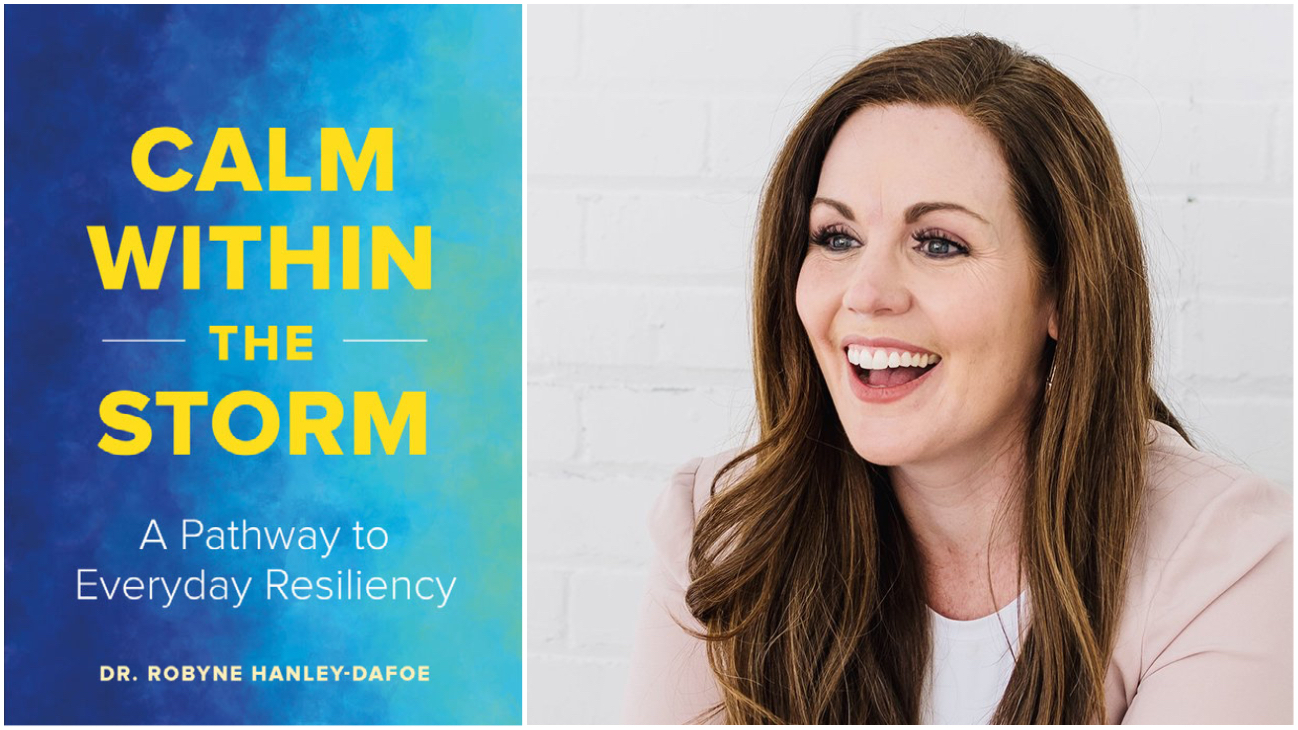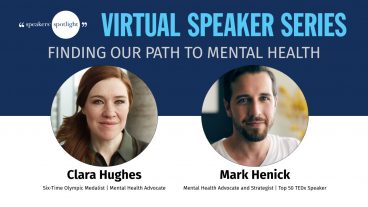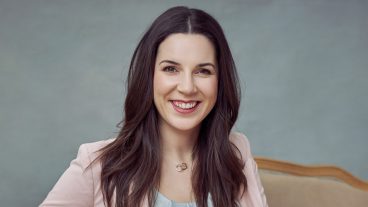Today sees the release of Dr. Robyne Hanley-Dafoe’s first book, Calm Within The Storm. This new work from the award-winning psychology and education instructor, workplace wellness expert, and acclaimed speaker is a distillation of years of research and experience—both personal and professional. It outlines the common mental health obstacles we all face, the “pillars” of resiliency we can use to support ourselves, and the paths we can follow to a healthier state of mind.
“My book’s core concept—’resilience is being okay’—comes from my nearly two decades of researching, teaching and advocating,” Robyne said in a press release for the new book. “Our mental and emotional health are being heavily taxed in the current landscapes of our lives. I want to embolden people to discover that come what may, they will be okay. And being okay is enough.”
Robyne approaches building resiliency through realistic and sustainable actions, founded on behavioural science research. In Calm Within The Storm, she breaks down theoretical applications and personal stories into actionable items.
“As the pandemic continues, I’m finding the people don’t have time for self-care and seem to have accepted self-neglect. I believe that experiencing Calm Within The Storm and learning that resilience is being okay will recharge, rebuild and restore people’s confidence to change and grow,” Robyne said.
Below is an excerpt from the introduction of Calm Within The Storm, offering insight into Robyne’s goals and approach with the book:
This book is an invitation to reframe how we think about resiliency. Often associated with concepts like persistence, mental toughness, or grit, resiliency is portrayed as a battle cry to summon Herculean strength. This forceful understanding and practice of resiliency is not attainable or sustainable for many of us. Life is hard, and it continues to be hard, but bearing down and pushing through the pain is not the only way to navigate the bumps, bruises, setbacks, and heartache. White-knuckling pain is not the only option.
Resiliency to me means doing the next right thing. It is taking that precarious step in the direction you want to go, despite what the world says about you or how hard it might be.
Unlike the current resiliency landscape that yells at us that we are not doing it right, or we just have to get over it, this book introduces a new theory of resiliency—what I call everyday resiliency. My theory of resiliency is based on years of experience working with people all around the globe. I never intended to create a new theory. My intention was to support people through their life’s journey. To welcome people where they were and help them map a course for where they could go. To help people see who they could become, and live a life that reflected their truest self. I think Ram Dass said it best when he wrote, “When all is said and done, we’re all just walking each other home.”
The ultimate goal of everyday resiliency is to foster a deep and personal sense of being okay, no matter what. I want you to discover that what you already have in your head and heart makes you capable of meeting any obstacle and rising to any challenge. With this steadfast self-awareness, you will live with the conviction that you are okay, and you will be okay. Rather than being at the top of your game or perfect all the time, you’ll realize that being okay is truly enough.
I have spent the last two decades instructing and learning alongside people from all walks of life. I have worked with them from early infanthood to elderhood as they navigated trials, tribulations, challenges, and setbacks.
Personally, I have spent time in the shadows of society as well. I have had my own mental health challenges, learning blocks, disordered eating behaviours, pain, abuse, loss, grief, and worst of all, the stigma that comes with those labels. As a psychology and education instructor, I have spent most of my career studying, teaching, and applying what we know about psychology as a means of helping people out of the shadows of pain through the practices of resiliency while personally trying to find my own way out, too. During this parallel journey, what I came upon was truly unique. I saw patterns, themes, and tendencies that forged a deeper understanding of what resiliency truly is. I experienced first-hand that resiliency theories, in general, needed a reckoning. So, here it is.
Resiliency is not reserved only for the mentally tough, the strong, or the fearless. Each person has the capacity for resiliency. It is not something you have or do not have. It is not something you are born with. When a person lives an examined life, they come upon this knowledge. When they know where to look, a person can see just how truly equipped they are to deal with all of life’s pains. Resiliency is there, inside us, and needs to be recognized. The most common reflection I hear from people who have survived life’s cruellest and hardest moments is, “I never knew I could survive this.” But they did. And you will, too.
Dr. Robyne Hanley-Dafoe is a multi-award-winning psychology and education instructor who specializes in resiliency, navigating stress and change, and personal wellness in the workplace. Described as transformational, engaging, and thought-provoking, Robyne’s keynotes provide practical strategies, grounded in global research and case studies, that help foster resiliency within ourselves and others.
If you are interested in booking Robyne or another speaker for a virtual presentation, please contact us for more information.




